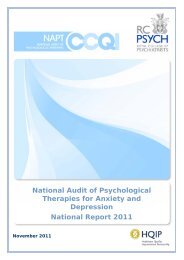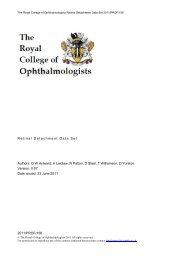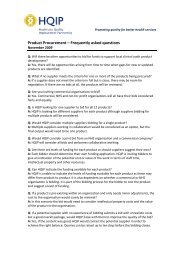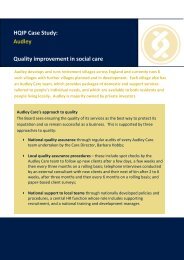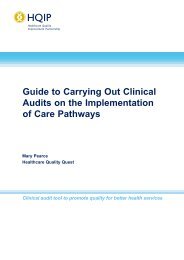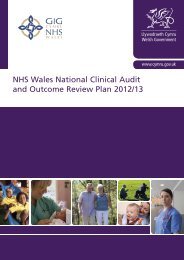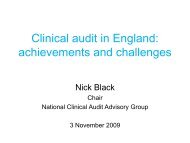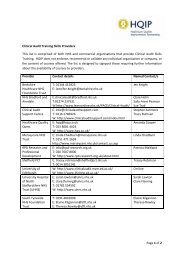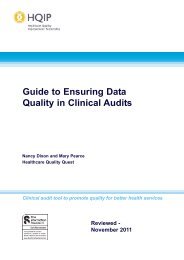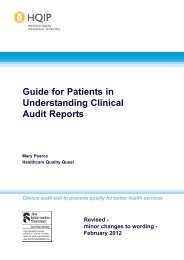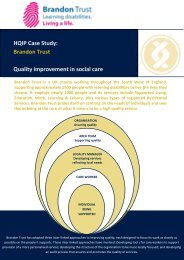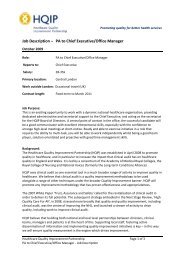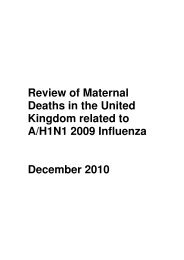Good Governance Handbook - HQIP
Good Governance Handbook - HQIP
Good Governance Handbook - HQIP
You also want an ePaper? Increase the reach of your titles
YUMPU automatically turns print PDFs into web optimized ePapers that Google loves.
are not. This is important for both internal control, and to ensure that external parties<br />
understand with whom they can make binding arrangements on behalf of the<br />
organisation. Those controlling an organisation need to be formally required to look<br />
after all stakeholder interests. They should have formal duties around their conduct<br />
and accountability.<br />
The Corporate Manslaughter and Corporate Homicide Act 2007, which came into<br />
effect on 6 April 2008, disposed of the need the need to identify a single individual as<br />
the 'controlling mind' - meaning now that a trust can be prosecuted as a corporate<br />
body.<br />
<strong>Governance</strong> principle 3: Stakeholders<br />
<strong>Governance</strong> needs to consider all stakeholders, even those who may not be<br />
immediately apparent. Stakeholders will classically include:<br />
• owners of the enterprise<br />
• investors (who may or may not be the owners)<br />
• customers<br />
• clients (who may be different form the customers)<br />
• beneficiaries (who in healthcare organisations may be different form<br />
customers and clients)<br />
• those whose money the organisation uses or is steward to, including creditors<br />
and bankers<br />
• regulators, who increasingly use governance systems to help support their<br />
work<br />
• staff<br />
• the wider environment and community.<br />
Why it is important<br />
It is important to recognise that in a complex world the conduct of an organisation<br />
can have significant effects on many, and as such those controlling organisations need<br />
to pay formal consideration to those who their actions might effect. In healthcare, it<br />
is important to be able to separate out responsibilities which in other industries<br />
would be congruent, such as to customers, clients and beneficiaries.<br />
NHS organisations are custodians, for example, of public funds, credit, private<br />
investment in the form of PFIs as well as resources belonging to individuals – pay<br />
owed to staff or patient property, for example. As in any high-risk industry,<br />
stakeholders increasingly rely on regulators to ensure that stakeholder interests are<br />
looked after and so the many regulators in healthcare have a material interest in how<br />
an organisation is governed.<br />
www.good-governance.org.uk 10



